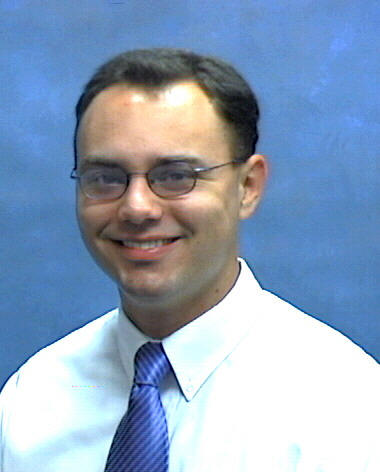1. What makes your program different from
other programs, or what made you choose your program?
I chose it, frankly,
because the residents seemed to work reasonable hours and I
liked San Diego. I think our residents work less shifts than
the average EM residency and it is always nice to enjoy your
time off in sunny San Diego.
2. If not
answered above, what's the best aspect of your program?
You get to experience a wide variety of practice settings as you
train in a military hospital where all the patients have
insurance and are well cared for as well as inner city hospitals
with a lot of homeless, uninsured, and HIV patients.
3. Are there any
major upcoming changes to your program?
No.
4. Is there
anything you would change about your program if you could?
I would increase the time we spend in the non-military ED's as
the acuity at our hospital is relatively low. It is not unusual
to go a few months between intubations or central lines, while
in the civilian ED's we train in you usually get a few of these
a week, if not multiple in a shift.
5. How much are
you responsible for blood draws, putting in IVs, etc.?
Never have to do it.
6. Do you learn
mostly from attendings, other residents, or textbooks? Does this
vary when you do off-service rotations?
Attendings do most of the teaching on the floor, but residents
lecture a lot at the weekly conferences. We use Tintinalli and
have weekly readings with quizzes. No, it doesn't vary with
off-service rotations.
7. How does EMed
rank in your hospital's hierarchy?
Equal to other departments.
8. What are the
perks that your school provides (PDAs, textbooks, conference
fees, meal tickets, etc.)?
You get to go to the
SAEM conference in your PGY-3 year for free. They will also
sometimes fund you if you are presenting research or other
activities at a conference. You get a free subscription to
PEPID for your PDA. You don't get any textbooks or membership
in any organizations, probably because residents in the Navy
make about double (if not more) than civilian residents.
9. How do you
rate your rotations outside of the emergency department?
For the most part, they are excellent, and we've gotten rid of
the majority of the ones that weren't.
10. What's the
best elective you've done?
Ultrasound elective.
11. How much does
your program focus on research?
Our program director requires a research project prior to
graduation, and he certainly favors residents that publish.
12. What do you
love and hate most about the city you're in?
I love golfing year round, and I hate the traffic. It is
killer.
13. Please
describe your typical month in terms of work hours and days off.
All shifts are 8 hours. You usually work 16-20 of them every 4
weeks. After conference is factored in and other things like
journal club, you usually have 4-8 complete days off in 28 days.
14.
How much time do you spend off-duty with the other residents?
A fair amount.
15. Do you have
any international experience?
No, unless you consider the inevitable deployment to Iraq
afterwards to count.
16. What are your
plans after residency?
Going to Naval Hospital Okinawa, Japan for 2 years to practice
EM.
17. How prepared
do you feel?
Extremely prepared.
18. Do you have
any advice for current applicants, or is there anything you wish
you'd known when you were applying?
Try to publish something or have something in the works if you
are applying as our program director looks favorably on research
activities. I would recommend this especially if you are not a
strong candidate.
